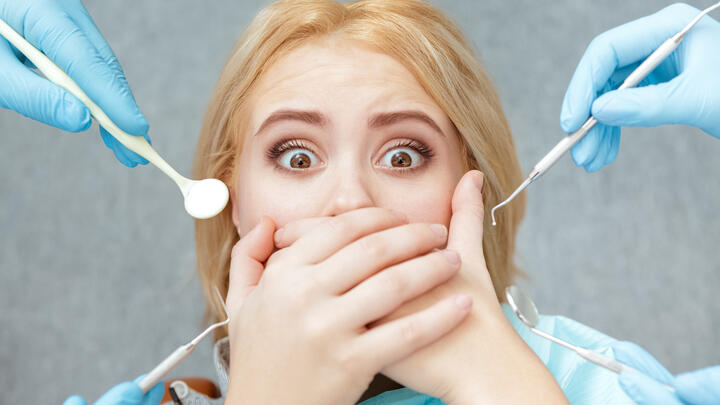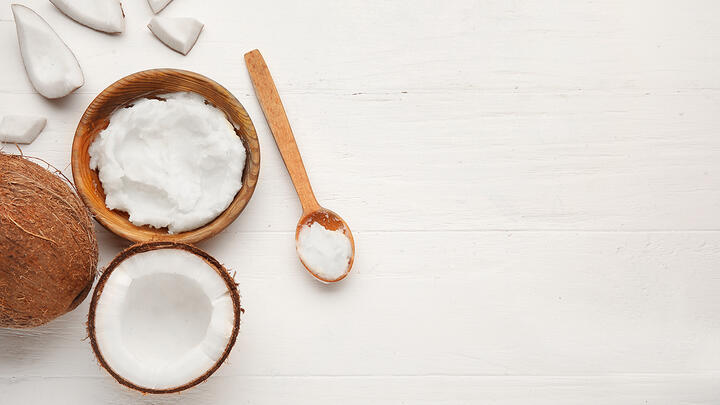5 min read
No More Mossy Teeth for People with Sensory Issues

"I cannot tolerate that mossy plaque feeling you wake up with on your teeth in the morning. Regardless, it has taken me most of my early adult life to force myself to consistently brush my teeth.", says our guest (who wishes to remain anonymous due to the, ahem, sensitive nature of the issue). Sounds familiar? If you or your child hate brushing your teeth too, it's highly likely that the problem lies deeper than just being lazy. So, before being quick to judge, read on to find out why some people seek alternatives to brushing their teeth.
When Brushing Your Teeth Is Hard
"I'm ashamed to admit this, but the number of years may be in the double digits, and I am only 22. Not brushing my teeth was like wearing the same old pair of jeans. Eventually, it stopped feeling grotesque and simply felt like a second skin. However, as time went on, I grew a new civilization in my mouth with its own unique system of government. The 'sip some juice, and the feeling goes away trick' stopped working. I'm sure you are wondering why I would go to such lengths to avoid brushing my teeth. This is something my mother asked quite a bit when I was a young child, perhaps every day… perhaps three times a day. 'I can't stand the feeling,' This is what I would say to my despairing mother, over and over, as she looked at me perplexed."
"To solve this problem my mother took to brushing my teeth while I was asleep. This became a nightly occurrence."
"It was somewhat effective. My mother, despairing over my oral health and hygiene, made the profound discovery that if you slop toothpaste in half-conscious kid sleeping mouth, they will wake up and have no choice but run to the bathroom and finish the job. Eventually, I caught on and I pretended to continue sleeping through the night and didn’t get up to do “the spit and rinse”. However, my very resourceful mother then took to wiping the toothpaste off my teeth as I feigned sleep. There was no getting past my mother’s understandable determination to avoid letting her child’s mouth rot. My mother, also being a psychologist, decided to research why I was so “stubborn” about my teeth. Thankfully for me she realized I wasn’t doing any of this on purpose. She figured out that I had “sensory problems." In the case of the horrifying tooth brushing, I was overly sensitive. I actually perceive tactile stimuli (i.e. things that I feel or touch, or that touch my skin and clearly my teeth) at a much higher level than others. As if this isn’t bad enough, I am also under-responsive. So, some areas of my skin almost feel numb to touch and I need a higher level of stimulation to feel what others feel. Eventually my bathroom garbage can was full of discarded toothbrushes because some tooth brushes were too hard and some were too soft."
"So, the mystery of my toothbrushing saga was finally solved. Yet, I still hated the feeling of a thin, bristly toothbrush, and I couldn’t walk around with bleeding, over-flossed gums."
Sensory Processing Disorder Explained
Our guest's fear of brushing teeth finally had its name: sensory processing disorder, a condition in which the brain has trouble receiving and responding to information arriving from the senses. People who experience this condition might be oversensitive to stimuli from their environment - such as loud sounds or brushing their teeth. The problems associated with sensory processing disorder are usually identified in children but can nevertheless affect adults, too.
How to Brush Your Teeth if You Have Sensory Issues?
Brushing teeth for people with sensory issues can be extremely uncomfortable: from the texture and taste of the toothpaste, to the feeling of nylon bristles on their teeth and gums. However, there are ways to alleviate this discomfort, for either you or your child:
1. Take it slow at the beginning.
Introduce the toothbrush gradually - first, start by touching its bristles with your fingers, then press it to your lips to get accustomed to the feeling. Next, try brushing your (or your child's) front teeth. When all of this feels bearable, try brushing all teeth.
2. Choose the right toothbrush.
Many people with sensory issues find electric toothbrushes gentler for their teeth and gums. Pay attention to the material of the toothbrush (avoid harsh nylon bristles), shape, and size. Smaller toothbrush heads can also feel less overwhelming in your mouth.
3. Experiment with toothpaste.
Taste and texture of the toothpaste can also be an issue for people with heightened sensitivity. Choose tasteless, fluoride-free, foam-free toothpaste - or better yet, a sensory-friendly toothpaste.
4. Try a desensitizing technique.
To prepare yourself or your child for brushing, use a desensitizing technique: try brushing the palm of your hand or other part of the body with the toothbrush to get accustomed to the feeling.
5. Create a routine.
Sticking to a routine helps with many things in life (from exercising to decluttering) and can also help with getting used to regular toothbrushing for people with sensory issues. Plan a routine that includes something you enjoy, something comforting. That way, you can look forward to that other routine once you're done with toothbrushing.
6. Seek professional support.
Occupational therapists and healthcare professionals experienced in sensory processing disorder can offer personalized strategies to cope and get used to things you can't tolerate more easily.
Alternatives to Brushing Your Teeth With Nylon Bristles
Back to our guest, that found a way to deal with discomfort when brushing her teeth: "I needed to find a toothbrush that I could somehow use! The toothbrush had to be without those nylon bristles that I can’t stand in my mouth, but also strong enough so that I could get a very satisfying floss." ![]()
"I found ISSA™ 3 silicone sonic toothbrush a game-changer.
ISSA™ 3 has silicone bristles, which feel much better than the dreadful nylon bristles. The way it pulses and massages my mouth provides the perfect amount of sensory stimulation that I need. The silicon handle also feels fantastic in my hands compared to the usual plastic toothbrush handle. I don't know if this brush is the answer to everyone's damaging sensory coping habits. Yet, it certainly would have changed my life! Perhaps if I had found this brush sooner, my dentist wouldn't have asked me if I was addicted to sugar because my teeth were in such horrible shape. That was embarrassing. For the sake of avoiding that awkward conversation with your dentist, I highly recommend ISSA™ 3 toothbrush."
ISSA™ 3 Sonic Toothbrush
The world's first silicone sonic toothbrush is the most significant advance in oral care in 70 years, thanks to its unique hybrid brush head made of medical-grade silicone and PBT polymer bristles. That's why ISSA™ 3 is up to 10,000x more hygienic than regular nylon toothbrushes. Its gentle T-Sonic™ pulsations can feel especially good on your gums and are also highly effective in breaking up plaque. The soft silicone bristles prevent the problem of brushing too hard and the discomfort of harsh nylon bristles. When you feel comfortable enough, you can use the ridges on the back of its head to gently clean your tongue and your cheeks. And if you're dealing with a child who refuses to brush their teeth, ISSA™ baby and ISSA™ kids help children aged 0-4 and aged 5-12 establish proper brushing habits, all while having fun. Read more about introducing your baby to oral care here.
We hope we dispelled some prejudices regarding people with sensory issues and that you'll find a solution to experience brushing your teeth; if not enjoyable, then manageable. Do you have sensory issues, and how do you deal with brushing your teeth? Do you have any advice to share with our readers? Please let us know in the comments below.








Comments
8 comments
Leave a comment